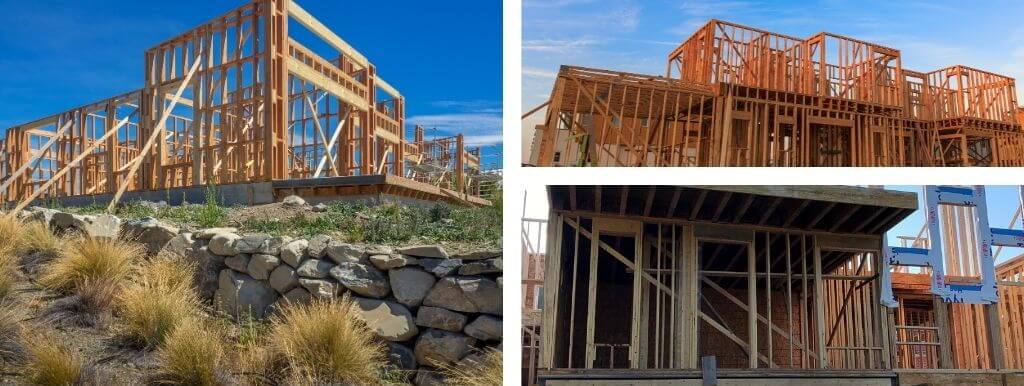If you’re an investor that has spent an endless amount of time scrolling through listings and working on deals that aren’t coming together, then it might be time to consider building a new property from scratch. If this is something you haven’t done before the process might seem more daunting and expensive than it really is.
Building a home from the ground up can be as rewarding as it can be challenging. The biggest advantage is that you have a chance to build a house that ticks every box for future buyers and maximizes your chances of a short resale period and a higher profit. The biggest disadvantage is that it can be a longer and more costly process, especially so if you don’t have a lot of prior construction experience. You’ll have to work carefully within budget and to a strict timeline to ensure that you don’t lose money with this investment.
All articles about home building mention the risk of the cost associated with building a house, but what kind of cost are we talking about? If you’re planning to build a new property, you need to know exactly what to prepare for and more importantly how much to prepare for.
Keep reading for our full guide to the average cost to build a house and what investors can expect to pay:
Table of Contents
First Question: How Much?
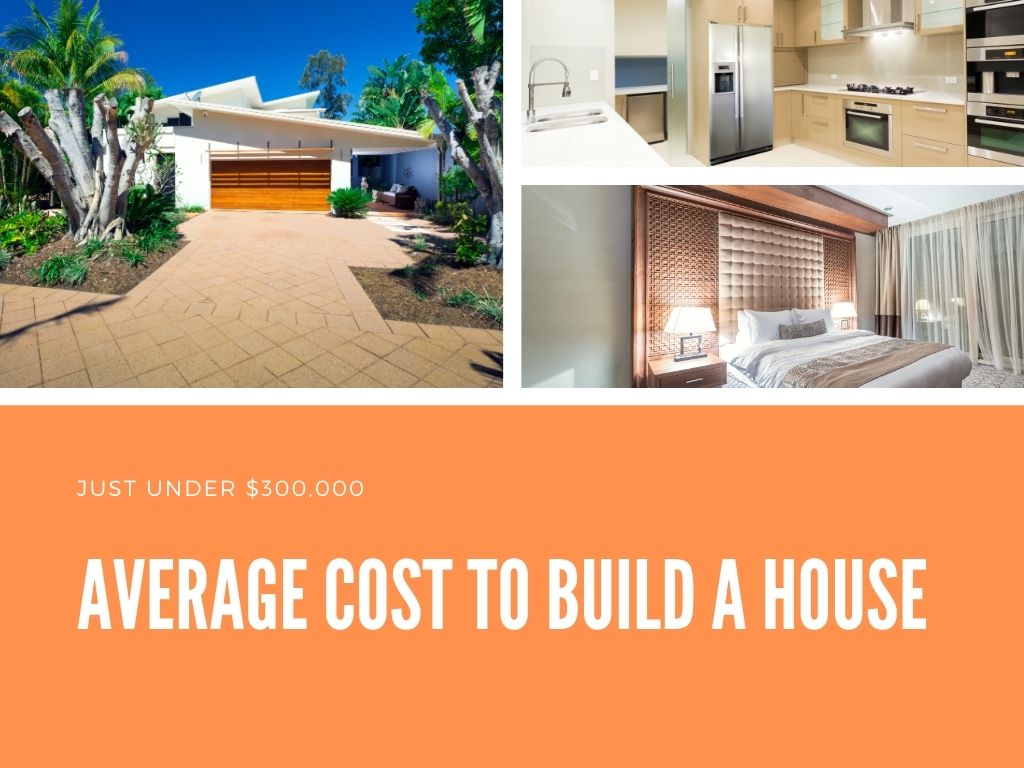
We know you want the information straight up, so here it is. A recent research report by HomeAdvisor indicated that the average cost to build a house in the US today is just under $300,000. To put it into perspective, a previous report showed that the median cost to build came in about $10,000 under the cost to purchase a completed property.
It’s also key to note that this is not a number that is set in stone. The location you plan to build in, labor costs, and many other factors can increase or decrease this baseline. It’s very possible that you could spend as little as $150,000 out in the countryside, or as much as $450,000 in a buzzing urban area.
We can show you how much location matters in terms of the cost per square footage by breaking it down by region. In the Northeast, the average cost per square foot comes in at around \$135, while properties in the midwest cost is closer to \$116. The highest cost per square foot can be found in the West where you can expect to pay $150 and the lowest in the south where the cost is $92 per square foot.
Now that you have the rough cost in mind, we can start going into the cost to build one step at a time. Also, if you need any help calculating the square footage of a house, our super simple square footage calculator can help.
Breaking Down The Cost To Build A House
Using numbers from the National Association of Home Builders, it’s possible to get a better idea of exactly where the money needs to go when you are building a house from scratch. The list below covers some of the more traditional costs associated with building a house, but remember that there are additional maintenance costs that need to be covered while construction is ongoing.
The Lot
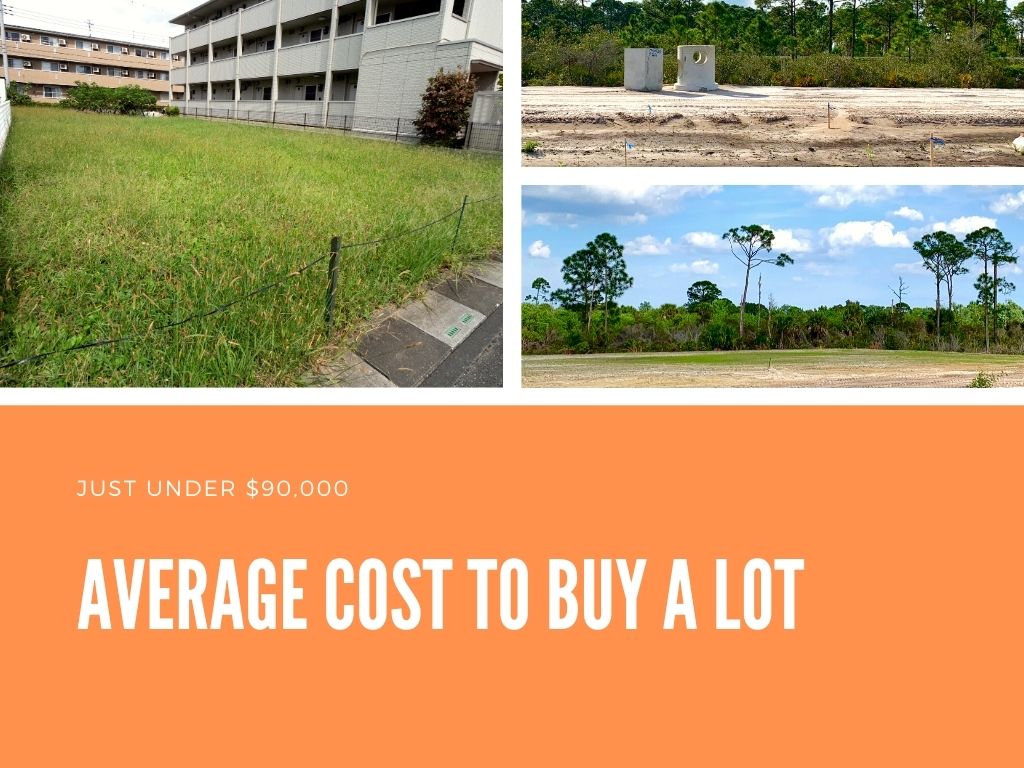
Let’s start with the first big expense you’ll need to cover, which is buying the land you’ll use to build on. Buying an empty lot can cost around $90,000 on average. This cost will obviously depend on the location the lot is in, and won’t include extras such as tree removal or the cost to level the land.
So using $90,000, how much land can you actually buy? The answer is around 22,000 feet.
Once you have the lot secured, it’s not as easy as dumping down materials and starting the build. Before any foundations are poured, plans need to be put together and permits acquired to make sure the property will be legal and up to code.
Plans And Permits
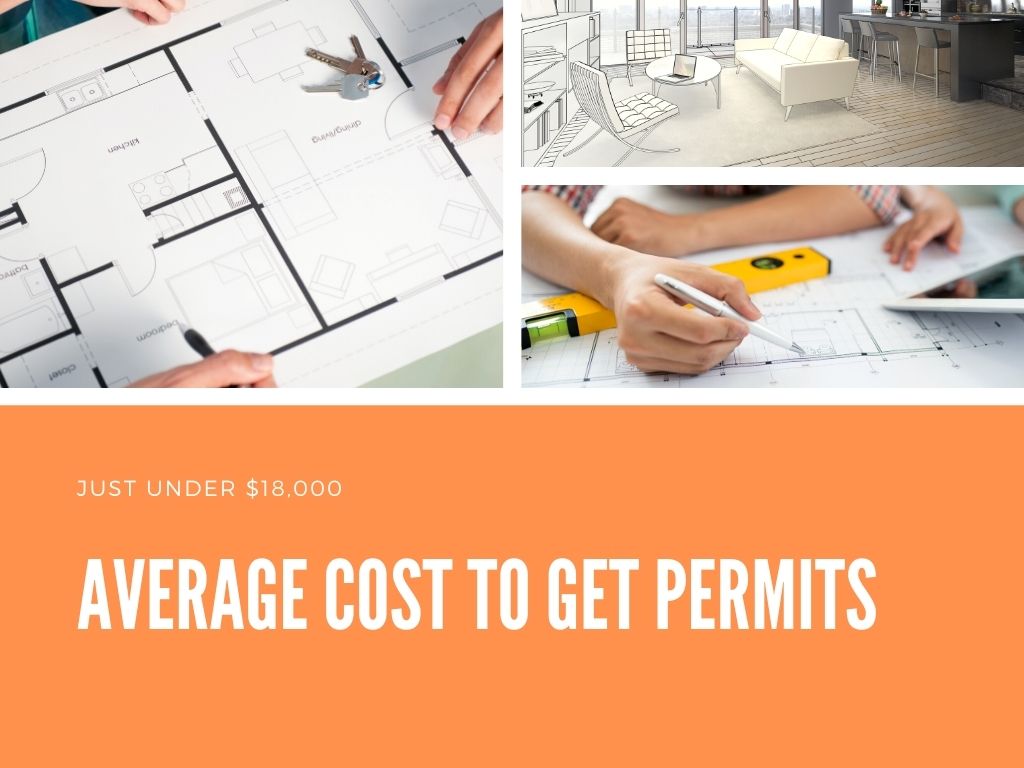
This step will see you meet with an architect to have plans drawn up for the home, and apply for all the relevant building permits you will need to ensure all construction is being carried out legally.
You should expect working with the architect and getting the permits to amount to around $18,000 depending on the type of work that needs to be completed and how complex the projects will be. This cost will also include preliminary inspections and the tying up of other loose ends that you need to get out of the way before you can start on construction.
This is the stage at which you want to solidify contractors and ensure you have the right construction team in place to get started. Make sure all the contracts are signed, the materials ordered and everything is ready for construction to begin.
Foundations
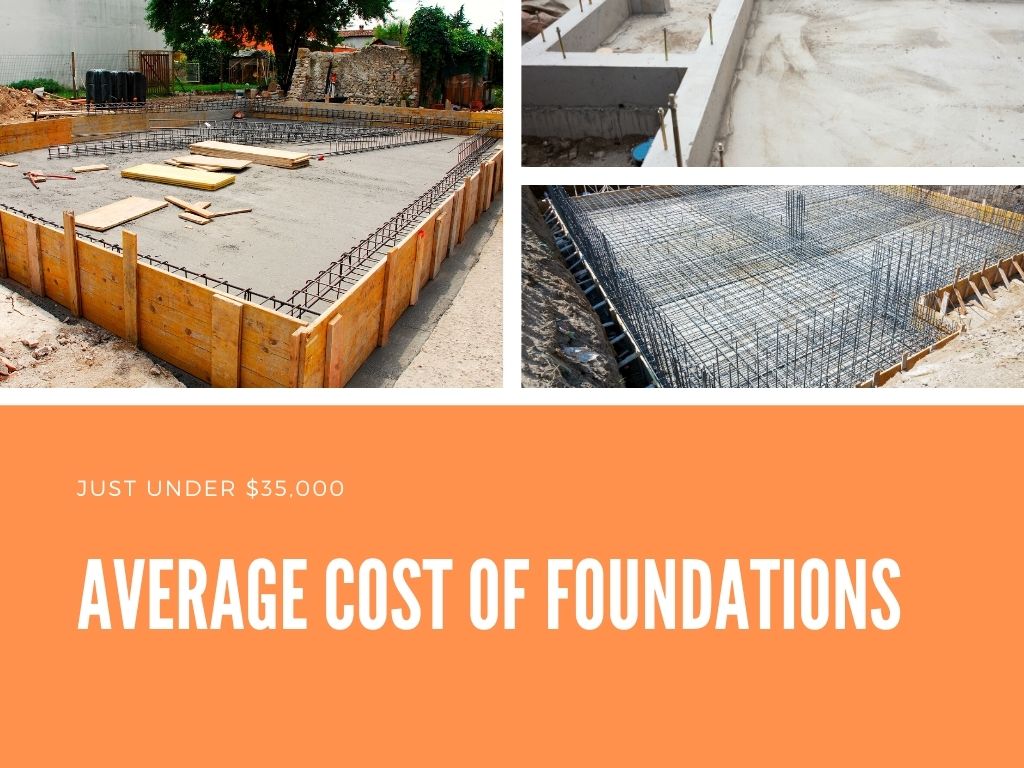
At this point the time has finally come to break ground and pour some foundations. Your contractor and their team will start digging the foundation space and the real work can begin. There are different kinds of foundations, which can affect the price you will pay.
You might have a slab, basement or crawl space – a concrete slab foundation is typically considered to be the most affordable option, while a basement foundation will be the more expensive option.
The cost to prepare the foundation space and pour the type you need will range up to $35,000 depending on the cost of labor and materials.
Framing
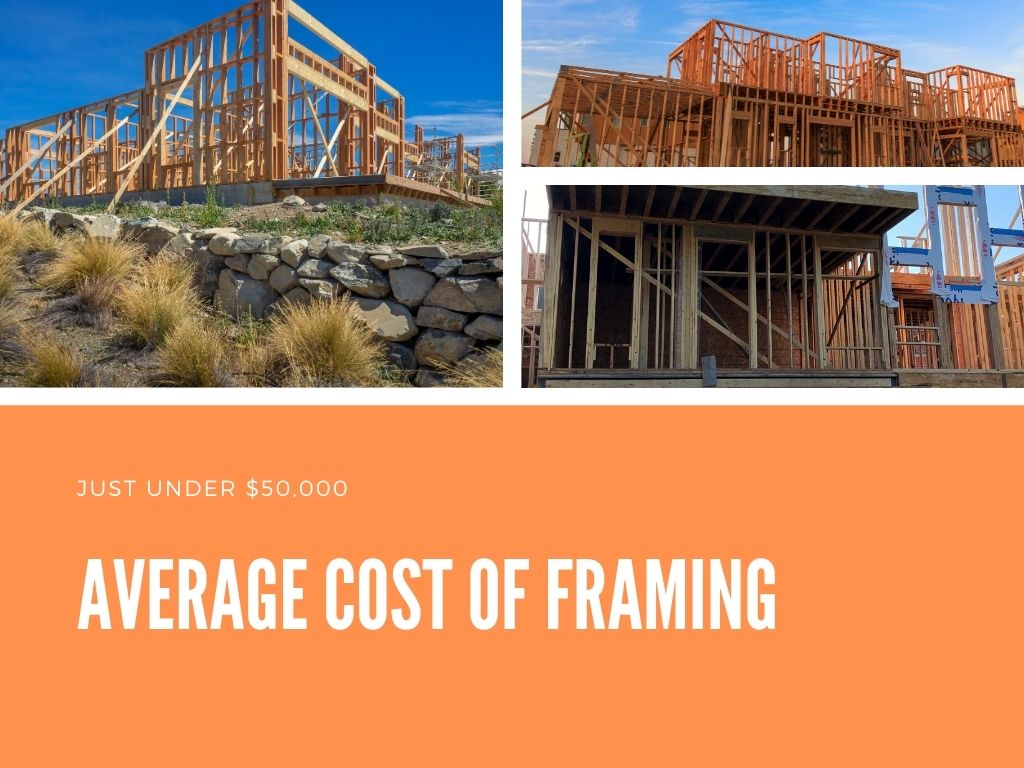
With the foundations in place and set, you can start framing the actual shape of the home. This process involves building up the rooms, floors and walls with plywood and adding trusses that will outline the roof and fit on top of the wall frames. This is also the stage at which the basics of the floor are installed and prepared for finishing later.
This will be one of your bigger ticket projects, and you can estimate it to cost you around $50,000.
Walls, Floors And Roofs
After framing, you’ll need to finish up the basics of the walling, floors and roofing. This process will include putting up siding, ensuring the floors are prepared and sheathing the roof. Average costs for this range around $40,000 depending on how big the property is.
Plumbing And Electrical
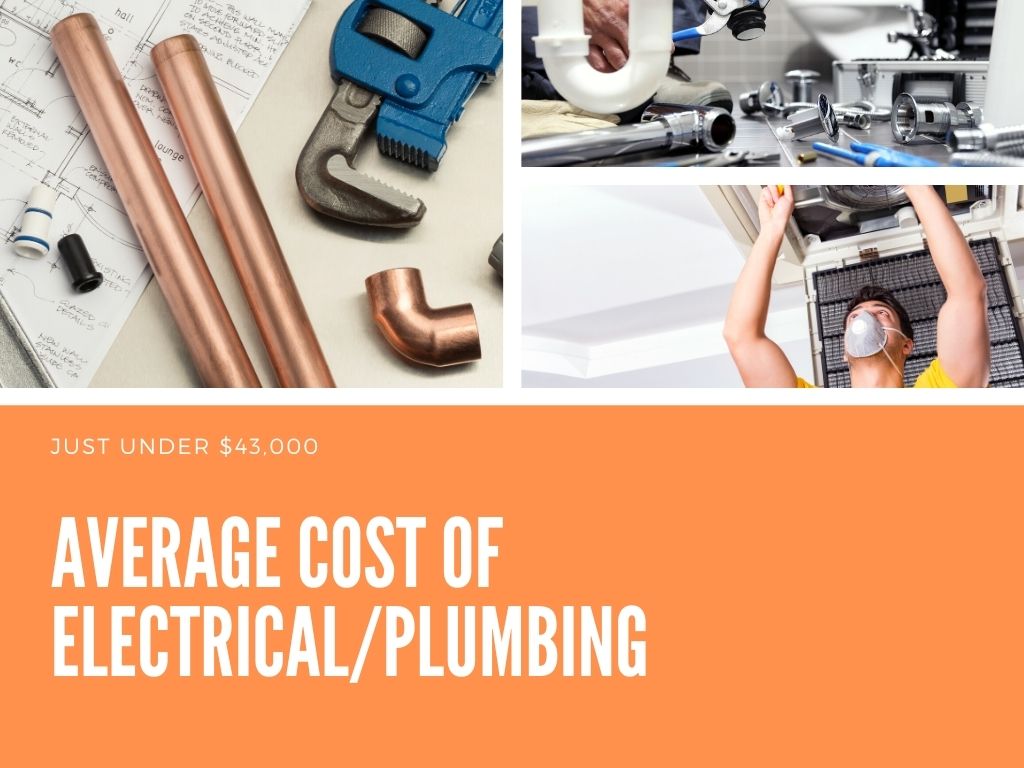
Next, the plumbing and electrical systems can be installed – a plumber and electrician will come to the property, set up all the pipes and water systems, and finish up the HVAC system and electrical connections.
It’s important to remember that this step does not include the fixtures and fittings. In this case, we’re just talking about the parts that you typically don’t see, like ducts and wiring. The cost of labor and materials here will amount to about $43,000.
Interior Work
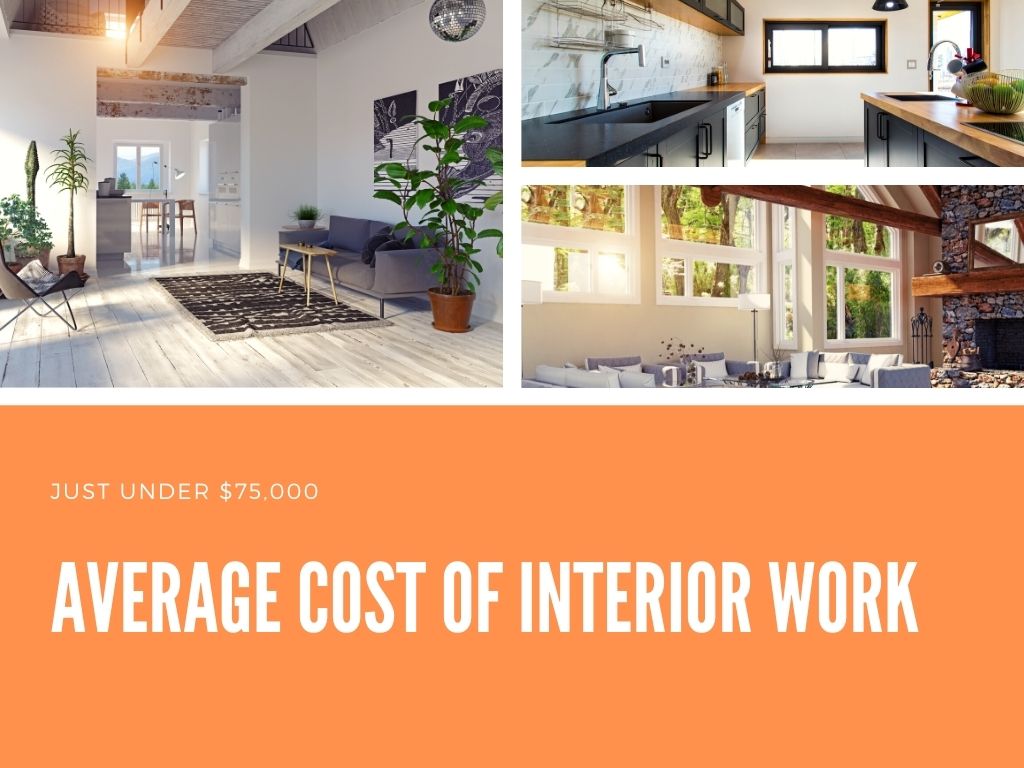
The shell of the home should be complete at this point, making it time to focus more attention on the interior. Interiors will mean things like insulation and drywall being installed, floors being finalized, doors being hung and all the basics concluded. Many investors like getting to this point because it allows them to have a bit more creative freedom and really see the picture come together.
This is also the stage at which cabinets can be added in the kitchen, countertops added and appliances installed and connected. The goal is to get close to sale-ready and ensure all the bigger projects are completed.
This step tends to be one of the pricier ones when it comes to average costs. Interiors are ultimately one of the biggest selling points of a home, and this is why investors will spend a more significant portion of their budget to get the property in tip-top shape.
Interior work can cost up to $75,000 depending on the work that you decide to do, whether you used paid labor and which materials you use. Remember that this number is a highly flexible one and you can really customize the cost of the property interior to your budget.
Final Touches
With the interiors just about completed, the construction of the home is nearly done. All that remains left to do is the final touches and additions that make the property ready for sale.
This is the part at which things like decks can be built, driveways constructed and the garden landscaped to increase the curb appeal of the home. If there is anything else that needs to be completed for the property to be ready for sale then this is the step where it needs to happen.
Experts recommend that you budget about $20,000 for this last step off the construction process – enough to cover the last few projects you need to do and get property inspections completed.
Remember This One Thing
All the numbers in this article are guidelines and are not set in stone. The cost to build a house is a highly variable thing and can at many levels be customized to fit your budget.
How much you spend will be down to you and your own research. You need to find the best estimates for the projects you want to complete and ensure you leave enough room in the budget for issues or costly surprises that might pop up.
It’s difficult to say with absolute certainty what it costs to build a house. There are many factors that can affect the average cost you’ll deal with and a lot of it will come down to the design and idea you have for the property.
How To Afford Building From The Ground Up
Not everyone has the type of money available to jump into a full home construction. It’s more common for investors to make use of external funds to finance the project. If your plan is to resell the property after it has been finished, you might not want to use a traditional mortgage loan or even get approved for one.
If you don’t have enough personal funds, you can rely on other types of real estate loans like the ones offered by New Silver. With newly-lowered rates, investors can now count on a minimum loan amount of \$75,000 and leverages that have increased for certain borrower levels.
